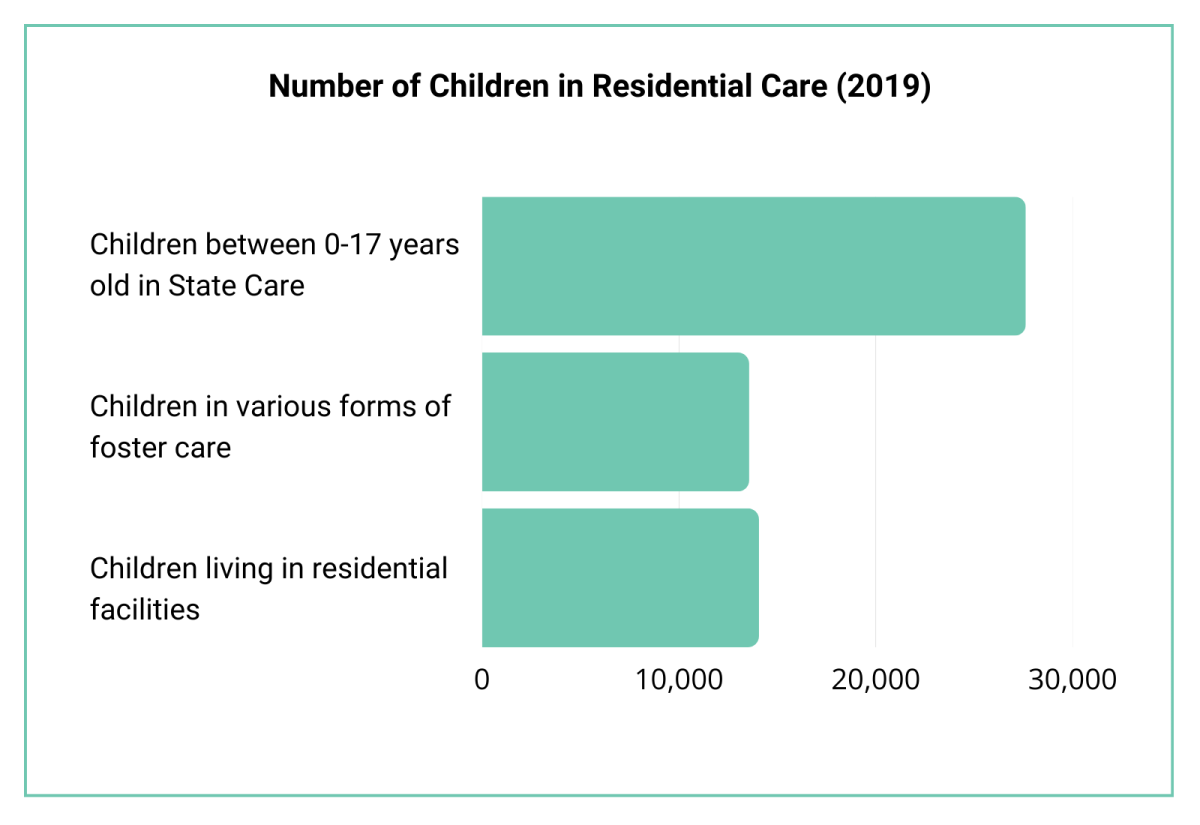RECOMMENDATION
Amend legislation to ensure all persons in situation of poverty access income support
Legislation to combat poverty should be guided by the principle that everyone and every household, regardless of composition, in a situation of poverty, can request it. Therefore, Decree no. 48/2023, introduced in May 2023, should be amended so that the ‘allowance for inclusion is available for all types of households in possession of the required subjective economic requirements, instead of categorising people as employable or not. Looking at poverty only from an employment point of view does not contribute to supporting someone holistically to be fully included in society.
SOCIAL SERVICES POLICY AND LEGAL FRAMEWORK
The Italian Constitution defines the essential levels of social services, which are applied at national, regional and local levels so that all citizens across different regions and municipalities have access to the same basic level of services and support. These services are further elaborated in three-year national social services plans (the current one lasts till December 2023), as stipulated by Law 328/2000. One of the pivotal planning documents currently in effect is the "National Plan of Interventions and Social Services 2021-2023."
Another important piece of legislation is the Reform of Title V of the Constitution (N. 3/2001), a constitutional amendment that has a direct impact on social services since it enhances the provision of social benefits and services by empowering regional and local authorities to take a more active role in addressing social issues.
Main Agencies
The national government regulates the rights of citizenship and the essential levels of services. Specifically, the Ministry with specific responsibility for social services is the Ministero del Lavoro e delle Politiche Sociali (MLPS), which collaborates with other departments like the Ministry for Policies for Persons with Disabilities.
The Regions have the authority to legislate in detail on health and social services, tailoring them to the specific needs of their local populations. The municipalities are responsible for organising the implementation of social services and often engage in collaboration with third-sector organisations to expand the availability and improve the effectiveness of these services.
SOCIAL SERVICES INVESTMENT
In 2019, Italy’s spending on social protection amounted to €525,000,000.000 or €8,697 per person per year. This expenditure includes social protection benefits (provided in cash or in-kind), administrative services, transfers to public administration bodies, non-profit institutions and families, and others.
However, there are considerable differences across regions. In the autonomous region of Trentino-Alto Adige, particularly in the province Autonomy of Bolzano, per capita expenditure is the highest, amounting to €583 per person. Lombardia, Lazio, Emilia Romagna, and Piemonte are also regions with relatively higher per capita spending on social protection, with figures of €141, €157, €177 and €136 per person respectively. On the other hand, the regions of Campania, Basilicata, and Calabria have comparatively lower levels of social expenditure, with figures of €56, €55 and €24 per capita respectively.
SOCIAL SERVICES COVERAGE
Long-Term Care
Residential Care
According to 2020 data, 13 million people are aged 65+ - 21% of the population.
There are 2.9 million older people with dependency needs. Of this number, 1.5 million people receive allowances or one or more services. 287,328 reside in residential facilities, while 294,063 people are being supported in semi-residential settings.
Home Care
911,102 older people (32% of older people) benefit from home care. On average, each person receives 16 hours of home care per year and 1.33 per month.
Support Services for People with Disabilities
Based on the latest data from the National Institute for Statistics (ISTAT) in 2019, the number of people with disabilities in Italy stood at 3,150,000, accounting for 5.2% of the total population. Of those, almost 1.5 million individuals (22% of the population in that age group) are over 75 years old.
Minimum Income Schemes
In 2021, 1,900,000 families were living in poverty, and by 2022, the number of beneficiaries receiving minimum income had reached 998,000. The average monthly benefit amounts to €533.68 and does not exceed €780 per month.
In 2023, the introduction of a new minimum income scheme resulted in a significant decrease in the number of eligible recipients.
Approximately 400,000 families, representing 39% of the current beneficiaries, will no longer qualify for this benefit. This change, which divides individuals into employable and not employable, will affect around 615,000 individuals, or 1 in every 4 recipients.
Child Protection Services
In 2019, there were 27,608 children/young persons aged 0-17 in state care, 13,555 were in various forms of foster care, and 14,053 were living in residential facilities.

Services for Female Victims of Violence
In 2020, there were 350 centres focused on assisting women facing domestic violence and abuse. Also, in 2020, 54,609 women reached out to these centres, and 30,360 initiated a request for support.
Services for Homeless People
In 2021, there were 463,294 registered homeless people - approximately 0.8% of the total population. There is no data available on the number of accommodation places for homeless persons per 100,000 inhabitants. Homeless persons are entitled to seek assistance through the Reddito di Cittadinanza programme.

